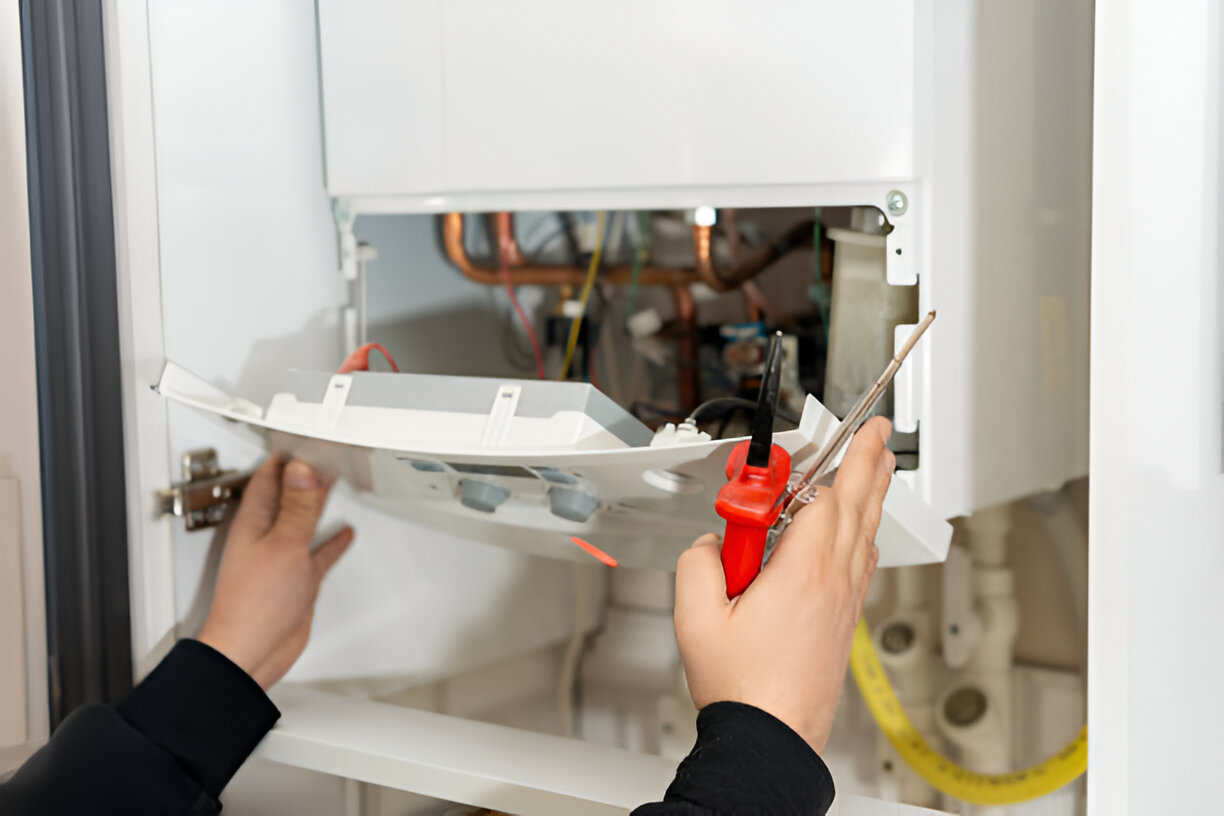
Heating Repair in Lititz, PA
A working heating system is essential for comfort and safety during Lititz’s cold winters. Whether your furnace, boiler, or heat pump is making strange noises, not keeping rooms warm, or cycling too frequently, professional heating repair in Lititz, PA solves the problem quickly and reliably.
Why timely heating repair matters in Lititz
Lititz experiences freezing temperatures, snow, and frequent temperature swings in shoulder seasons. Those conditions increase stress on heating equipment—especially in older, historic homes with original ductwork, radiator systems, or marginal insulation. Prompt repair reduces energy bills, lowers the risk of cold-related damage (frozen pipes, moisture intrusion), and addresses safety concerns such as carbon monoxide leaks or electrical faults.
Common heating systems and problems in Lititz
We work on the heating systems most common to the area and the issues they typically have:
- Furnaces (gas, electric, oil)
- No heat or intermittent heat
- Furnace short-cycling (turning on and off rapidly)
- Pilot light or electronic ignition failures
- Blower motor or fan failures
- Igniters, burners, or cracked heat exchangers
- Boilers (hot water and steam)
- No heat to radiators or baseboards
- Cold spots in system, noisy operation (kettling)
- Pressure loss or continual cycling of the expansion tank
- Circulator pump failure, airlocked loops
- Sediment and scale buildup reducing efficiency
- Heat pumps (air-source, cold-climate models)
- Loss of heating capacity in very cold weather
- Frozen outdoor coil or refrigerant issues
- Reversing valve or compressor faults
- Defrost cycle failures and short-cycling
Local factors that commonly contribute to problems: older ductwork or radiator systems, sediment from hard water in boilers, and the extra strain caused by prolonged cold spells.
What a professional diagnostic includes
A good heating repair begins with a methodical diagnosis that isolates the root cause rather than guessing:
Visual inspection
- Check for obvious signs: leaks, rust, soot, wiring damage, blocked vents, or frozen outdoor units.
Operational check
- Run the system through a full cycle while monitoring thermostat response, blower operation, burner ignition, and response times.
Safety and combustion testing (for fuel-fired systems)
- Inspect flue and venting, test for carbon monoxide, check combustion efficiency if safe and applicable.
Electrical and control testing
- Verify thermostats, relays, capacitors, voltage to motors, and control board signals.
Hydronic specifics (boilers)
- Measure pressure, check expansion tank condition, assess circulator pump and zone valves, and examine for sludge or air locks.
Refrigerant and mechanical checks (heat pumps)
- Evaluate refrigerant charge, compressor function, reversing valve operation, and defrost controls.
Report and options
- Provide an itemized diagnosis with repair options, expected life remaining, and efficiency implications.
A thorough diagnostic prevents unnecessary parts replacement and helps homeowners in Lititz make informed decisions based on safety, cost, and long-term performance.
Repairs and parts replacement explained
Repairs range from simple component swaps to more complex system overhauls. Common replacements include:
- Furnaces: ignitors, flame sensors, draft inducer motors, blower motors, control boards, and air filters.
- Boilers: circulator pumps, zone valves, expansion tanks, pressuretrols, and sensors.
- Heat pumps: reversing valves, contactors, capacitors, thermostatic expansion valves, and defrost controls.
When deciding repair vs replacement, technicians consider:
- Age of the equipment and estimated remaining life
- Cost of repair compared to expected savings with a newer, more efficient model
- Safety issues (cracked heat exchangers, repeated ignition failures, or frequent refrigerant leaks)
- Availability of replacement parts for older models
Safety-first repairs (shutting off gas, isolating electrical faults, securing leaking boilers) are prioritized and documented before any comfort-focused work.
Emergency repair protocols for Lititz homes
Winter failures can be urgent—especially in freezing temperatures or in homes with vulnerable pipes. Emergency repair protocols typically include:
- Immediate safety assessment (gas shut-off, CO detection, electrical isolation)
- Stabilizing the home (temporary heaters or interim measures where safe and appropriate)
- Prioritizing repairs that restore safe operation quickly (ignition systems, circulator pumps, or emergency parts)
- Clear communication on the problem, estimated time to repair, and follow-up recommendations
Many local technicians stock commonly needed parts and can source specialized components quickly given Lititz’s proximity to Lancaster County suppliers.
Pricing transparency and guarantees
Transparent pricing builds trust and clarity:
- Itemized estimates after diagnosis: parts, labor, and any necessary permits or disposal fees are listed.
- Clear explanation of diagnostic fees and how they are applied if work proceeds
- Warranty information: parts and labor warranty durations and what is covered
- Financing or phased repair options can be discussed for larger projects to spread cost without sacrificing safety
Expect clear documentation that helps you compare repair vs replacement and understand the value of each option.
Tips to extend system life in Lititz homes
Small actions reduce failures and extend equipment life:
- Change or clean filters regularly (monthly for many systems during heavy use)
- Schedule an annual preseason tune-up (combustion safety checks for furnaces/boilers and refrigerant cycle checks for heat pumps)
- Keep vents and registers unobstructed and maintain airflow
- Insulate exposed pipes and insulate the attic to reduce system runtime
- Flush boiler systems or use water treatments where hard water causes scale
- Install or program thermostats to reduce excessive cycling
These steps improve efficiency, comfort, and reduce emergency repair risk during the coldest Lititz weather.


Enjoy flexible financing options that make upgrading or repairing your HVAC system easy and budget-friendly.










